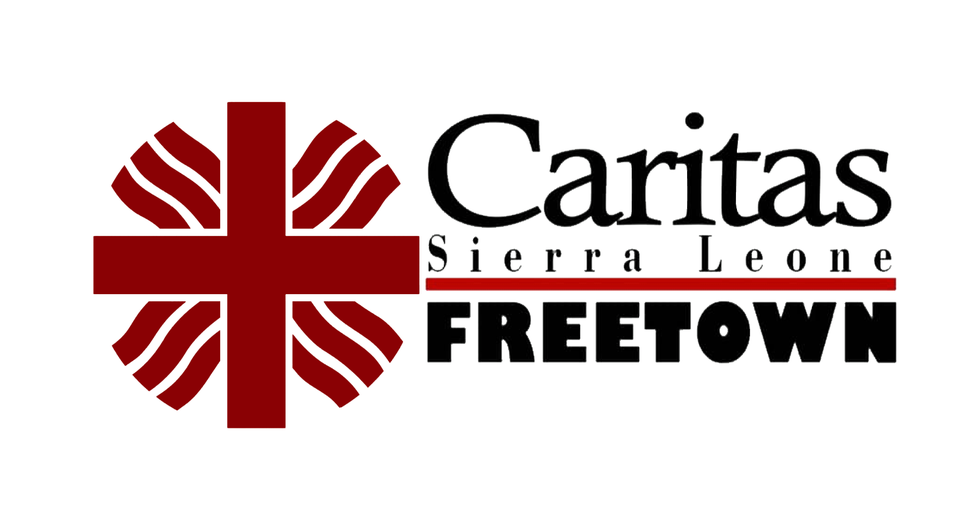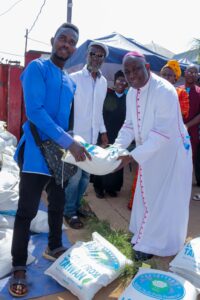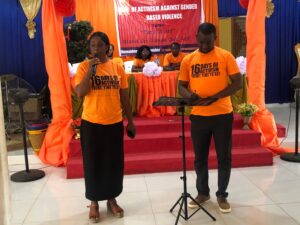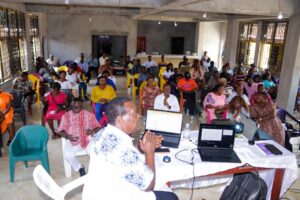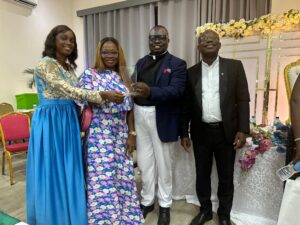On Wednesday 20 March, we celebrated a highly esteemed occasion at Waterloo District Hall. Sponsored by Caritas Freetown, Mano Unidas and managed by WAADO, a community-based advocacy group that seeks to empower vulnerable groups such as youth, women, girls, street children, orphans, and the rural poor in the Waterloo community.
We commemorated 25 female students with experience of SGBV and GBV-related matters, inhibiting their personal and educational development. Based in the Rural Urban District Waterloo, the students recently graduated from their skills training programme in Catering and Seamstress work – as a testament to their hard work Caritas Freetown has supplied the students with Start-Up kits to invigorate entrepreneurship and independence through their craftmanship.
So far, this one-year project has positively impacted over 20 communities transforming and enhancing the lives of women and girls in vulnerable communities. Director of WAADO Doris Fatima Webber emphasised the importance of women’s entrepreneurship in women and girls in Sierra Leone she expressed, “This programme has been very impactful, as an advocacy group, we have rehabilitated women and girls to be modern ambassadors, for those vulnerable to attain essential skills to sustain themselves.”
We received a testimonial from a Catering Graduate from the programme Mary K. Bangura who had an extensive journey reaching this point she expressed her gratitude for the transformational impact this project has had on her she stated “Before this programme, I was just passing the streets relying on men and my family to provide for me, I’m so thankful for Caritas for this opportunity, with this experience, I am going to use these skills to educate other girls to make an impact.”
Here at Caritas Freetown, we celebrated International Women’s Day with the theme ‘Invest in Women Accelerate Progress’ not only on the 8 March but for the entire duration of the month, we as an organisation must raise awareness of these current issues that women and girls are facing in our society today and how we can combat these issues through the power of collaboration and cohesiveness with other organisation groups.
Together, we can ensure that women and girls can build a better nation by equipping them with relevant knowledge and skills so that we can see a brighter tomorrow for our future leaders and changemakers.
